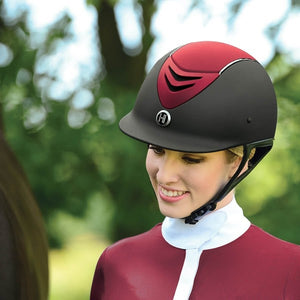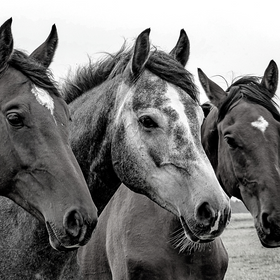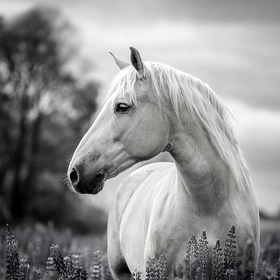
Spring Vaccines- What You Need to Know
Spring is right around the corner and we are all looking forward to some warmer days. With those warmer days comes all sorts of fun for equestrians — more riding, horse shows, and events to list a few. Before you start getting ready for your first horse show, make sure your horse is up-to-date on all of their vaccines. Vaccines help your horse develop an immunity to common diseases and are often required at events (plus, a negative Coggins Test!).
Core V. Risk-Based Vaccines
Some horse vaccines are considered core vaccines, while others are categorized as risk-based vaccines. Core vaccines are vaccines that are recommended for every horse annually. Risk-based vaccines should be considered for your horse depending on a variety of risk factors, such as where you live, how often and where you travel to, and chances of exposure. Your veterinarian should be consulted to develop a vaccine schedule to meet your horse’s individual needs. American Association of Equine Practitioners (AAEP) also provides equine vaccination guidelines for horse owners.
|
Core Vaccines |
Risk-Based Vaccines |
|
Rabies |
Equine Influenza |
|
Tetanus |
Strangles (Often given intra-nasal) |
|
West Nile Virus |
Equine Herpesvirus (Rhinopneumonitis) (EHV) |
|
Eastern Equine Encephalitis (EEE)/Western Equine Encephalitis (WEE) |
Potomac Horse Fever |
|
Botulism |
|
|
Equine Viral Arteritis |
|
|
Anthrax |
|
|
Rotavirus |
|
|
Snake Bite |
|
|
Leptospirosis |
Creating a Vaccine Schedule
To build a vaccine schedule that meets your horse’s needs, consider:
Geography: Some diseases are widespread, while others are regional or local. Vaccinate for diseases that are common where your horse lives or could travel to.
Lifestyle: If your horse travels to horse shows or other events, they are more likely to come into contact and need protection against diseases that spread among a group of horses. If your horse does not travel, but lives in a facility where other horses travel, you’ll want to provide the same protection. Horses can carry diseases without being symptomatic and infect other horses at home.
Use: Vaccine requirements for broodmares, foals, and breeding stallions will vary compared to a show or pleasure horse. For example, foals or horses being vaccinated for the first time will require booster vaccines within a few weeks of the first vaccines. Stallions and broodmares will also have additional vaccine requirements outside of the core vaccines.
Age: Horses under the age of five are more susceptible to EHV and West Nile Virus. You’ll want to take extra precautions if your horse has the potential to be exposed.
Spring Vaccine Schedule
In general, you should include any vaccines designed to protect against diseases spread by insects in your Spring vaccine schedule. As the weather gets warmer and insects start to reappear, your horse will be at higher risk of contracting one of the diseases insects carry, like West Nile Virus and EEE/WEE. Other vaccines, like Rabies and Tetanus are not transmitted by insects. These vaccines can be given at any time of year.
It takes vaccines several weeks to provide optimal protection for your horse (assuming they have been vaccinated before), so plan ahead for any events. Again, consult your veterinarian for the best plan for your horse.





